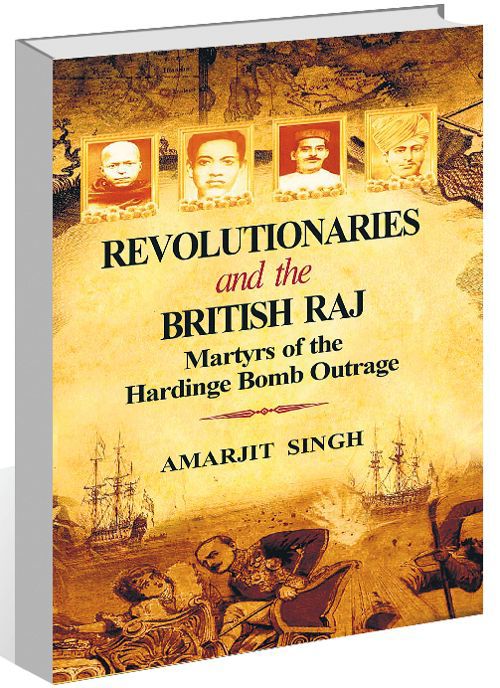Amarjit Singh’s ‘Revolutionaries and the British Raj’: Failed bid to kill Viceroy, and after
Salil Misra
The struggle against the mighty British imperialism had a certain grandeur about it. One important part of it was the great range of ways in which this struggle was fought. Many distinguished individuals from Maharashtra, Bengal and North India grew very determined to eliminate British rule through violent means. They were convinced that this could be achieved through guns and bombs. They carried out a large number of killings of British officials. The book under review tells the story of one such assassination attempt on Viceroy Hardinge in December 1912.
In 1911, the British decided to shift the capital from Calcutta to Delhi. Lord Hardinge, the new Viceroy, arrived in Delhi to inaugurate the new capital. He landed at the railway station and proceeded in a big procession to Lal Qila via Chandni Chowk. Many revolutionaries under the leadership of Rash Behari Bose had made elaborate plans to throw a bomb on the Viceroy. As the procession reached Chandni Chowk, the bomb was thrown at the Viceroy, seated on an elephant. It wounded the Viceroy and killed his assistant sitting behind him. The Vicereine escaped unhurt.
Elaborate investigations began almost immediately. Nearly 20 suspects were apprehended from Delhi, Punjab and Bengal and trials began. The judgment passed by the courts was indeed harsh. Some got life imprisonment and some were deported for life. Four convicts — Awadh Behari, Amir Chand, Bal Mukund and Basant Kumar Biswas — were given the death penalty and were hanged in 1915. The Hardinge bomb episode ended here, but the efforts to bring about political change through violent means continued till 1930.
It is a story of great courage and heroism. The young men paid the ultimate price for their commitment. It is, however, debatable whether it brought about any immediate results. There is little evidence that it advanced the struggle for Independence in any concrete way. It did, however, inspire many young people to become ready to sacrifice their all in the cause of freedom.
At the time of hanging, a British official asked Awadh Behari about his last wish. He smiled and replied: “I wish that the British Raj should come to an end. I wish that there must emerge a powerful revolutionary movement which may lead to the end of the British rule in India. Only then, there will be complete peace.”
The bombing episode exemplified extreme courage and commitment. The heroic deeds of Subhas Chandra Bose, Bhagat Singh and Surya Sen, his counterpart in Bengal, have attracted the attention of many filmmakers. The Hardinge Bomb Case has all that it takes to make a movie around the episode of 1912, when some committed revolutionaries made a failed effort to strike terror in the heart of British imperialism. Anyone listening in Bollywood?









